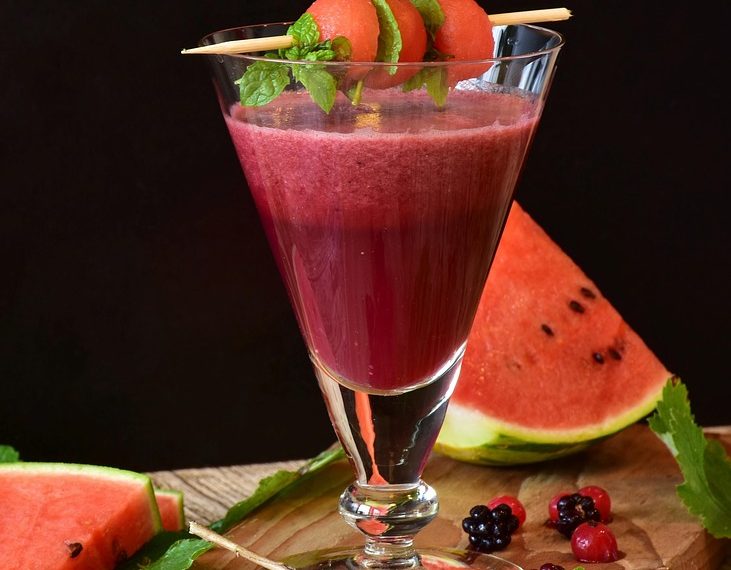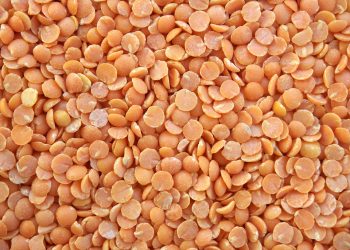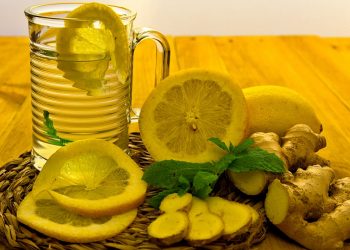Did you know that watermelon is not just a summer treat but also a potential metabolism booster? Yes, you heard that right! This juicy, hydrating fruit is packed with nutrients that can help rev up your metabolism. If you’re looking for a refreshing way to enhance your metabolic rate, look no further than watermelon juice. In this article, we’ll dive into five ways watermelon juice can give your metabolism a little kick, along with practical tips and insights.
Contents
1. Hydration: The Unsung Hero of Metabolism
Let’s start with the basics. Watermelon juice is about 92% water. Staying hydrated is crucial for maintaining an efficient metabolism. When your body is well-hydrated, it can perform metabolic processes more effectively. Dehydration can slow down your metabolism, making it harder for your body to burn calories.
Why It Matters
- Cellular Functions: Hydration helps in cellular functions, including nutrient transport and waste elimination. A well-hydrated body can metabolize food more efficiently.
- Thermogenesis: Drinking cold watermelon juice may slightly increase your metabolic rate as your body works to warm the liquid to body temperature.
Pro Tip
Try starting your day with a glass of chilled watermelon juice. It’s not only refreshing but also a great way to ensure you kick off your day with adequate hydration.
2. Rich in Amino Acids: The Building Blocks of Metabolism
Watermelon juice contains an amino acid called citrulline, which has garnered attention for its potential benefits in boosting metabolism. Citrulline may help improve blood flow and reduce muscle soreness, making it an excellent choice for post-workout recovery.
The Science Behind It
Research suggests that citrulline can enhance the production of nitric oxide in the body, which may improve circulation and boost energy levels. A study published in the Journal of Nutrition found that citrulline supplementation improved exercise performance and recovery times (Zhang et al., 2010).
Cons to Consider
While citrulline can be beneficial, it’s important to note that the effects may vary from person to person. Some may not experience significant benefits unless they consume it in larger quantities, which might mean more watermelon juice!
Pro Tip
If you’re hitting the gym, consider enjoying watermelon juice before or after your workout. It can help fuel your workout and aid in recovery.
3. Low in Calories, High in Nutrients
One of the most appealing aspects of watermelon juice is that it’s low in calories yet high in essential nutrients. This makes it a fantastic option for those looking to manage their weight while still getting a nutritious boost.
Nutritional Breakdown
A cup of watermelon juice has about 46 calories but is packed with vitamins A and C, magnesium, and potassium. These nutrients play various roles in metabolic health:
- Vitamin A: Supports vision and immune function.
- Vitamin C: An antioxidant that helps combat oxidative stress and supports metabolism.
- Potassium: Aids in muscle function and regulates fluid balance, which is crucial for metabolic processes.
Caution
While watermelon juice is low in calories, it’s still important to consume it in moderation. Overdoing it can lead to excessive sugar intake, even if it’s natural sugar.
Pro Tip
Mix watermelon juice with other low-calorie juices, like cucumber or lemon, for a nutrient-dense, refreshing drink that keeps your calorie count low.
4. Antioxidants: A Metabolism Booster
Watermelon juice is rich in antioxidants, particularly lycopene, which gives watermelon its red color. Antioxidants are crucial for combating free radicals in the body, which can slow down metabolic processes and lead to various health issues.
The Lycopene Connection
Studies have shown that lycopene may help reduce inflammation and improve insulin sensitivity, both of which are important for maintaining a healthy metabolism. A study published in the American Journal of Clinical Nutrition found that higher lycopene intake was associated with better metabolic health (Rao et al., 2007).
Potential Downsides
While antioxidants are beneficial, it’s essential to remember that balance is key. Relying solely on watermelon juice for antioxidants may not provide a comprehensive nutritional profile. Incorporate a variety of fruits and vegetables into your diet for optimal health.
Pro Tip
Add a splash of lime or mint to your watermelon juice to enhance flavor and increase your antioxidant intake. Mint has its own health benefits and can aid digestion, which is another key player in metabolism.
5. Natural Diuretic: Flush Out Toxins
Watermelon juice acts as a natural diuretic, helping to flush out excess fluids from the body. While this may not directly boost metabolism, it can support overall metabolic health by reducing bloating and supporting kidney function.
Why It’s Important
A healthy kidney function is crucial for metabolic processes, as they help filter waste and regulate fluid balance. By keeping your kidneys in good shape, you’re indirectly supporting your metabolism.
Caveats
Overconsumption of watermelon juice may lead to frequent urination, which can be inconvenient. It’s essential to find a balance that works for you.
Pro Tip
Consider enjoying watermelon juice in combination with other hydrating foods, like cucumbers and celery, for added benefits in fluid balance and detoxification.
FAQs
1. Can watermelon juice really boost my metabolism?
Yes, watermelon juice can support metabolic health through hydration, amino acids, and antioxidants. However, it should be part of a balanced diet and healthy lifestyle for the best results.
2. How much watermelon juice should I drink daily?
Moderation is key. A glass (8 ounces) of watermelon juice can be a refreshing addition to your diet, but be mindful of your overall sugar intake.
3. Are there any side effects of drinking too much watermelon juice?
Excessive consumption can lead to increased urination and may contribute to an imbalance in your diet if not paired with other nutrients.
4. Can I mix watermelon juice with other ingredients?
Absolutely! Mixing watermelon juice with other fruits or vegetables can enhance its flavor and nutritional profile. Consider adding mint, lime, or even ginger for an extra kick.
Conclusion
Watermelon juice isn’t just a delicious, hydrating beverage; it also offers several benefits that can boost your metabolism. From its high water content to its rich supply of nutrients and antioxidants, this summer staple can be a refreshing addition to your health routine.
Remember, while watermelon juice can support metabolic health, it’s essential to combine it with a balanced diet and an active lifestyle for optimal results. So go ahead, pour yourself a glass of watermelon juice, and toast to your health!
Disclaimer: This article is for educational purposes only and is not a substitute for professional medical advice. Always consult a qualified healthcare provider before making changes to your health routine.
References
-
Rao, A. V., & Rao, L. G. (2007). Carotenoids and human health. American Journal of Clinical Nutrition, 85(5), 1286-1292. https://academic.oup.com/ajcn/article/85/5/1286/45927
-
Zhang, Y., et al. (2010). Citrulline supplementation improves exercise performance in athletes. Journal of Nutrition, 140(9), 1717-1722. https://academic.oup.com/jn/article/140/9/1717/45721
-
Mayo Clinic. (2022). Watermelon: Health benefits. https://www.mayoclinic.org/healthy-lifestyle/nutrition-and-healthy-eating/in-depth/watermelon/art-20045652
-
National Institutes of Health. (2021). Nutrient recommendations: Dietary reference intakes. https://ods.od.nih.gov/HealthInformation/Dietary_Reference_Intakes.aspx
Get Your FREE Natural Health Guide!
Subscribe now and receive our exclusive ebook packed with natural health tips, practical wellness advice, and easy lifestyle changes — delivered straight to your inbox.















